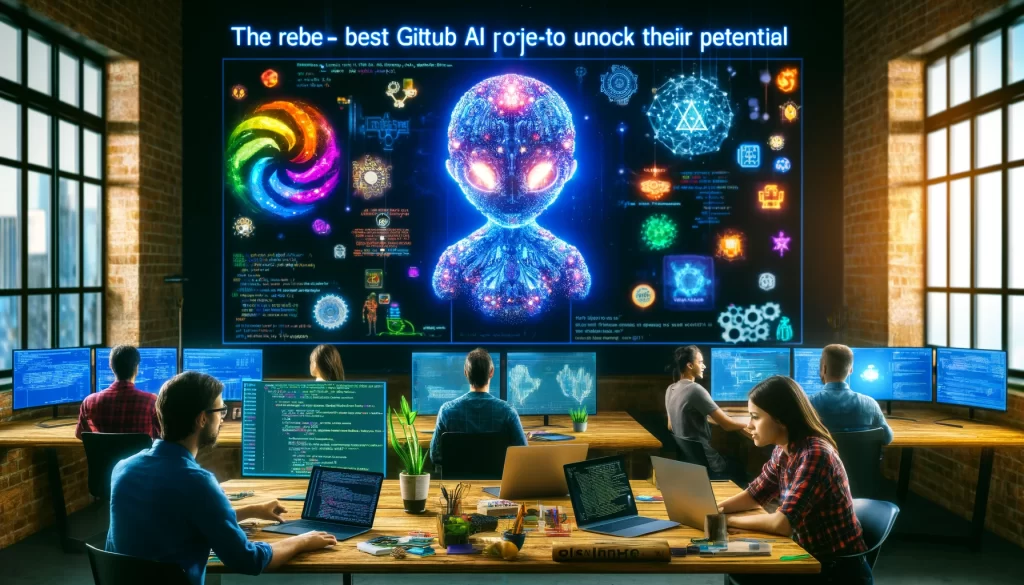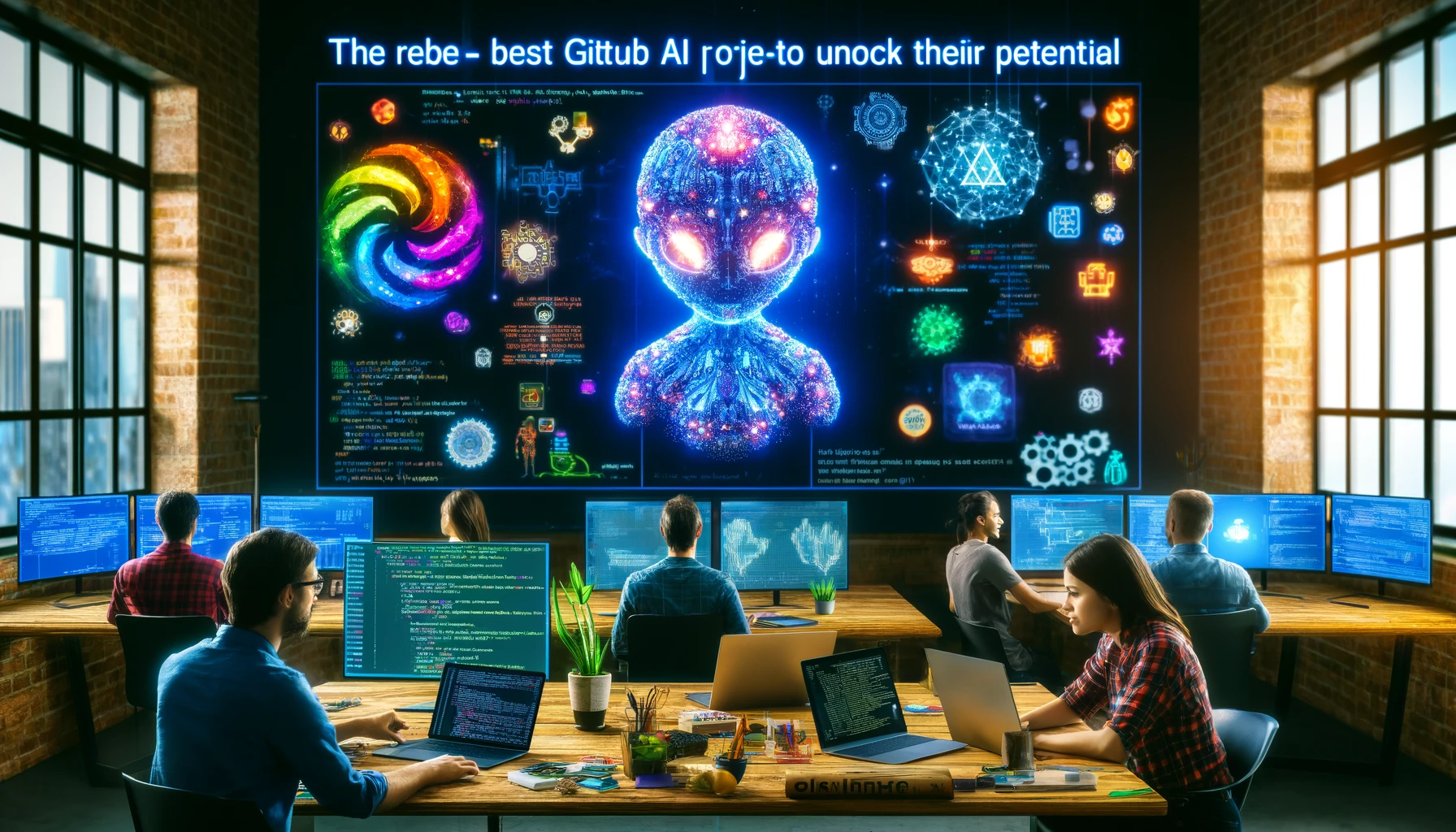Artificial intelligence (AI) has revolutionized countless industries, unlocking new opportunities for developers who are ready to harness its potential. GitHub, the largest platform for open-source development, houses a vast ecosystem of AI projects that can accelerate your learning and professional growth. In this guide, we’ll explore the best GitHub AI projects for developers, showcasing how you can unlock your potential through these open-source repositories.
Why GitHub AI Projects?
GitHub offers unparalleled benefits for developers looking to master AI:
- Skill Development: Contributing to real-world projects provides practical experience.
- Global Collaboration: Connect with researchers, enthusiasts, and experts worldwide.
- Rapid Innovation: Projects evolve quickly with diverse contributions.
- Portfolio Building: Showcase your skills through contributions to high-profile projects.
The Developer’s Guide to the Best AI Projects on GitHub
Here are the top GitHub AI repositories that can help you unlock your potential.
1. TensorFlow
Repository: tensorflow/tensorflow
Stars: 181k+
Forks: 87k+
Description: Developed by the Google Brain team, TensorFlow is a machine learning library that supports deep learning, numerical computation, and data flow graphs.
Why Try It?
- Cutting-Edge Features: Explore TensorFlow Extended (TFX) and TensorFlow Lite.
- Real-World Applications: Collaborate on models used in Google’s production environments.
- Global Community: Engage with a vast network of contributors and researchers.
2. PyTorch
Repository: pytorch/pytorch
Stars: 69k+
Forks: 19k+
Description: Originally developed by Facebook’s AI Research lab, PyTorch is favored for its flexibility and ease of use.
Why Try It?
- Dynamic Graphs: Experiment with dynamic computation graphs for model training.
- Rich Ecosystem: Access advanced tools like TorchScript and ONNX export.
- Active Community: Collaborate with a thriving network of researchers and developers.
3. OpenCV
Repository: opencv/opencv
Stars: 71k+
Forks: 27k+
Description: OpenCV is an open-source computer vision library used for object detection, facial recognition, and augmented reality.
Why Try It?
- Comprehensive Vision Tools: Access tools for image processing and computer vision.
- Cross-Language Support: Work with Python, C++, Java, and more.
- Community Engagement: Participate in hackathons, discussions, and coding challenges.
4. Hugging Face Transformers
Repository: huggingface/transformers
Stars: 110k+
Forks: 22k+
Description: Hugging Face’s Transformers library offers pre-trained models for various natural language processing (NLP) tasks.
Why Try It?
- Pre-Trained Models: Utilize BERT, GPT-3, T5, and other advanced models.
- Comprehensive Tutorials: Learn from detailed guides and documentation.
- Inclusive Community: Join a global network of NLP enthusiasts.
5. spaCy
Repository: explosion/spaCy
Stars: 27k+
Forks: 4k+
Description: spaCy is an open-source NLP library known for its efficiency and ease of use.
Why Try It?
- Efficient NLP Models: Access efficient tools for various NLP tasks.
- Production-Ready: Build and deploy NLP models in production.
- Integrations: Integrate spaCy with TensorFlow, PyTorch, and other libraries.
6. Keras
Repository: keras-team/keras
Stars: 57k+
Forks: 19k+
Description: Keras is a high-level neural networks API known for its user-friendly and modular design.
Why Try It?
- Easy to Learn: Build deep learning models quickly with simple APIs.
- Backend Flexibility: Work with backends like TensorFlow, Theano, and CNTK.
- Vibrant Community: Engage with students, researchers, and industry professionals.
7. MLflow
Repository: mlflow/mlflow
Stars: 17k+
Forks: 4k+
Description: MLflow is an open-source platform that manages the machine learning lifecycle, covering experimentation, reproducibility, and deployment.
Why Try It?
- Lifecycle Management: Track experiments, manage models, and ensure reproducibility.
- Flexible Deployment: Deploy to Docker, Kubernetes, and more.
- Comprehensive Tracking: Efficiently track experiments and manage model versions.
8. LightGBM
Repository: microsoft/LightGBM
Stars: 15k+
Forks: 4.5k+
Description: LightGBM is a gradient boosting framework that focuses on performance and distributed training.
Why Try It?
- Optimized Learning: Experiment with optimizations for GPU training and parallel learning.
- Cross-Platform Compatibility: Access bindings for Python, R, and other languages.
- Industry Impact: Work on projects impacting finance, healthcare, and more.

9. Fastai
Repository: fastai/fastai
Stars: 25k+
Forks: 6.4k+
Description: Fastai simplifies deep learning training with high-level abstractions.
Why Try It?
- Simplified Training: Access high-level components for efficient training.
- Free Courses and Tutorials: Learn with comprehensive educational resources.
- Active Forums: Participate in forums and study groups.
10. Detectron2
Repository: facebookresearch/detectron2
Stars: 26k+
Forks: 5.5k+
Description: Detectron2 is Facebook AI Research’s computer vision library for object detection.
Why Try It?
- Advanced Object Detection: Experiment with Mask R-CNN, RetinaNet, and DensePose.
- Scalable Implementation: Handle real-world datasets and applications.
- Research Collaboration: Collaborate with researchers in computer vision.
How to Maximize Learning and Contributions
To make the most of GitHub AI repositories, consider these tips:
- Read the Docs: Familiarize yourself with the project’s goals and contributing guidelines.
- Start Small: Begin with simple tasks like fixing typos or improving documentation.
- Join Discussions: Participate in GitHub issues, forums, and dedicated channels.
- Review Code: Reviewing code helps you understand the project’s standards and patterns.
- Pair Programming: Collaborate with other contributors via pair programming.
- Open Issues: Help tackle open issues or propose new features.
Final Thoughts: Collaborate and Grow
Open-source AI projects on GitHub provide a rich learning environment for developers. By exploring these top repositories, you can sharpen your skills, build your portfolio, and make a meaningful impact in the AI community. Start small, contribute consistently, and unlock your potential with GitHub’s best AI projects.

